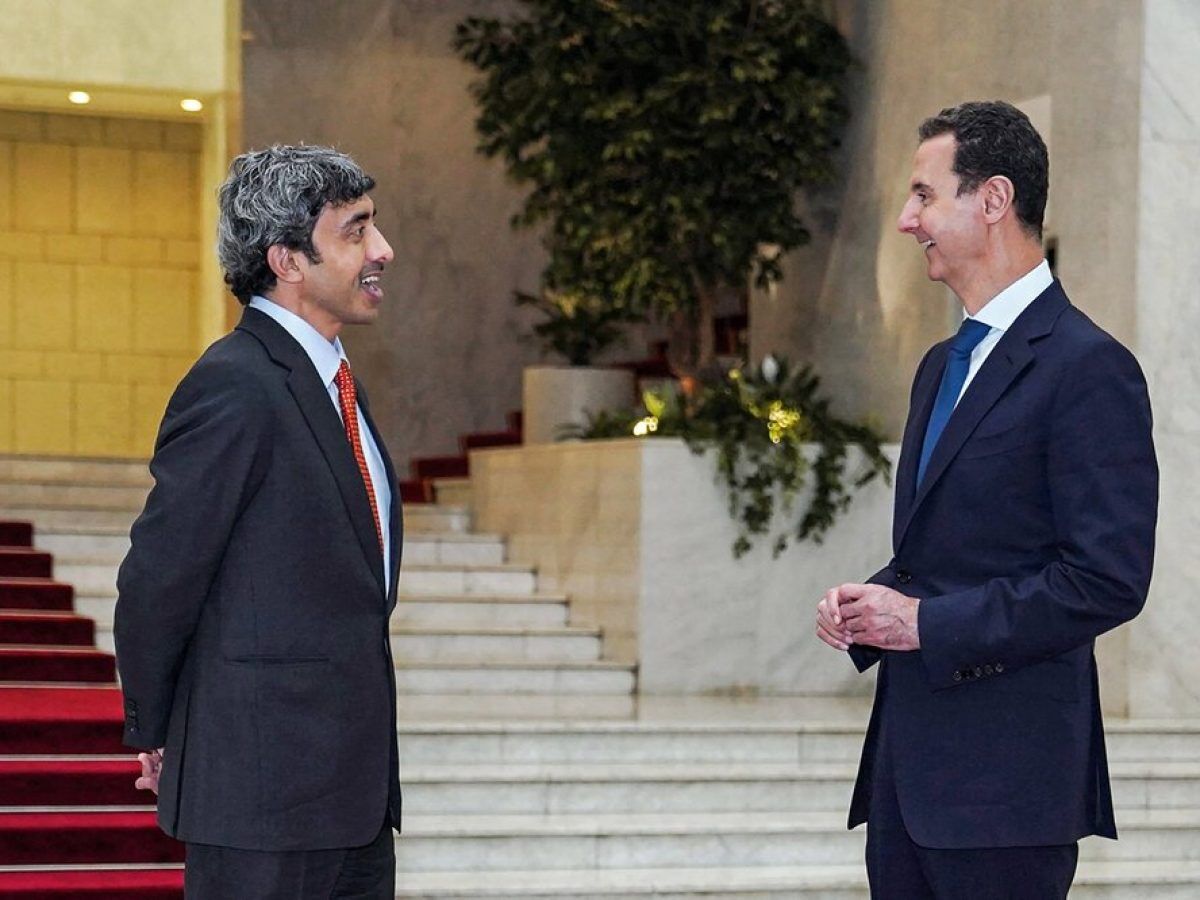Coming closer
Bashar al Assad’s visit to UAE signals normalisation of Syria-Arab ties, and can facilitate post-war reconstruction of the economy reeling under Western sanctions

Syrian President Bashar al Assad's hours-long surprise visit to the United Arab Emirates (UAE), his first to an Arab country since the civil war erupted in Syria in 2011, sends a clear signal that the Arab world is now willing to engage with the once widely shunned leader.
The visit last Friday came against the backdrop of the raging war in Ukraine where the 56-year-old Syrian leader's main ally, Russian President Vladimir Putin, is pressing on with a military offensive, raining lethal fire on Ukrainian cities, including capital Kyiv.
The Syrian leader has supported the Russian action, terming it as a "correction of history" and blaming the West for provoking it.
Assad's trip, which followed a visit by the UAE's foreign minister Abdullah bin Zayed to Moscow a day earlier where he met the Russian President, is the latest sign of warming relations between Syria and the energy-rich UAE that also normalised ties with Israel in 2020. Putin has been urging Arab states to normalise relations with Syria.
The visit by Assad, who is sanctioned by the US government, also comes amid an Arab effort to bring Syria in from the cold as well as tensions between the US and the Gulf countries over Russia's invasion of Ukraine, and Washington's response to recent drone attacks from Iran-backed Houthi militias in Yemen on the UAE and Saudi Arabia.
The UAE and Saudi Arabia — two of the world's biggest oil exporters — have so far avoided taking a position against Russia, impacting Gulf-US relations.
The UAE, along with the majority of Arab states, had broken ties with Syria soon after the civil war erupted, and backed rebel fighters in their attempts to overthrow Assad's regime. Syria was also expelled from the 22-member Arab League. Human rights groups had further accused Assad's government of perpetuating war crimes and crimes against humanity.
The UAE reopened its embassy in the Syrian capital Damascus in December 2018, suggesting an effort to bring Assad's regime back into the Arab fold. Last November, UAE's foreign minister met Assad in Damascus for the first time since the civil war began.
The US has maintained a tough stand on the Assad regime and, in recent years, sought to increase international pressure on him to accept a broader role for his opponents.
Assad has made few international trips since his country's long and bloody civil war began in March 2011, which has killed about half a million people, displaced millions and devastated the country's infrastructure.
Until now, the Syrian President had left the war-torn country to visit Russia and Iran, both military backers of his regime. Iran has given the Syrian government billions of dollars in aid and sent Iran-backed fighters to fight alongside Assad's forces — the assistance which, along with Russian air power, helped turn the tide in his favour.
During the visit, Assad met with the UAE's de facto ruler and crown prince of Abu Dhabi, Sheikh Mohammed bin Zayed Al-Nahyan, along with other top leaders.
The two sides discussed "fraternal relations" between the two countries, UAE's official news agency WAM reported, adding that Sheikh Mohammed "stressed that Syria is a fundamental pillar of Arab security."
Assad stressed the UAE's role in the region, according to Syrian state-run news agency SANA.
The US, a key ally of the UAE, reacted sharply to the visit saying it was "profoundly disappointed and troubled" by, what it called, an apparent attempt to legitimise Assad.
"We urge states considering engagement with the Assad regime to weigh carefully the horrific atrocities visited by the regime on the Syrians over the last decades," the State Department spokesperson Ned Price said.
The US is against efforts to normalise relations with the Syrian leader until progress is made towards resolving the civil war.
With the war having fallen into a stalemate, and the Syrian leader recovering control over most of the country, Arab countries have now inched closer toward restoring ties with Assad in recent times.
Assad's visit to the UAE has been in the works for some time but it seems its timing has some relation to Russia's military action in Ukraine and the apparent imminent resumption of the nuclear deal between Iran and the P5 countries.
Although several countries in the Arab world are inclined to renew ties with the Assad regime, the outright veto by the US is likely to prevent a complete normalisation of ties beyond the UAE and Jordan. The Cairo-based Arab League is also unlikely to give Syria its seat back in the near future.
A key consideration for the overtures by Sunni Muslim countries in the Persian Gulf is to blunt the involvement of their Shiite rival Iran whose influences have rapidly expanded in the region in chaos of the Syrian war.
The rapprochement between Syria and its Arab neighbours is not only in the interest of the two sides but also for bringing peace in the region.
Syria badly needs to boost the ties as its economy is being strangled by crippling Western sanctions and also its needs for post-war reconstruction. Large part of Syria has been destroyed and reconstruction would cost tens of billions of dollars.
The writer is a former Editor of PTI and served as the West Asia correspondent for the same. Views expressed are personal



